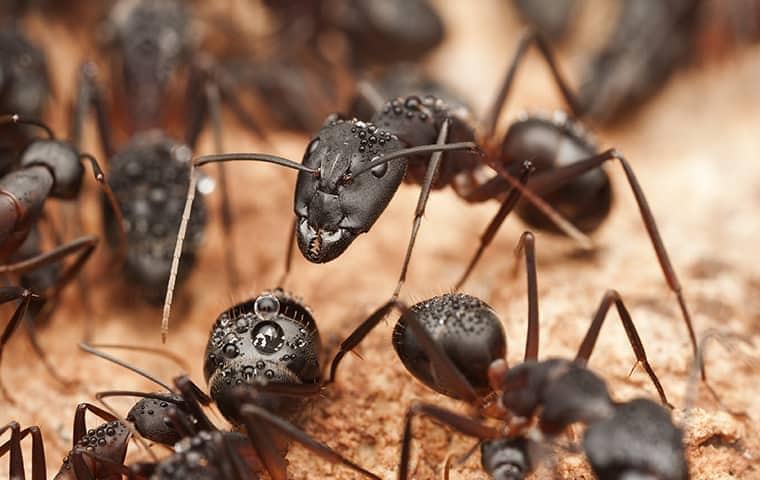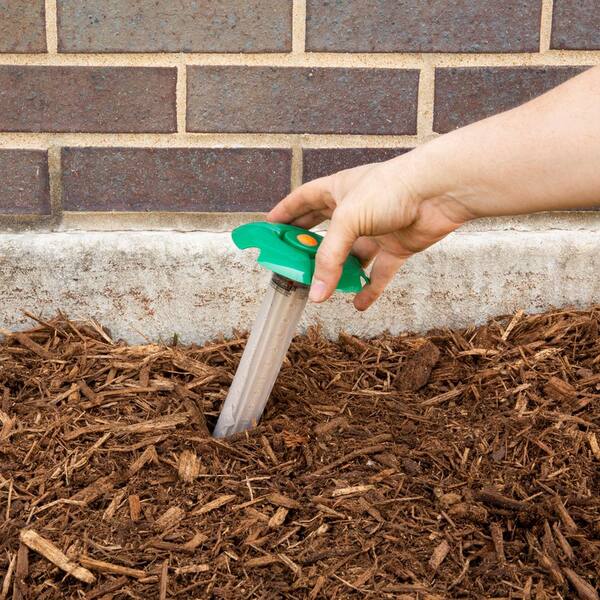Environmental Effect of Bug Control: Harmonizing Effectiveness With Sustainability
The environmental effect of bug control is an essential concern that calls for a fragile equilibrium in between accomplishing efficiency in making sure and taking care of pests sustainability of our communities. As we aim to protect our crops, homes, and health and wellness from the hazards postured by parasites, the approaches we employ can unintentionally damage the setting. From using dangerous chemicals that seep into our dirt and water to the unexpected repercussions on non-target types, the effects of traditional parasite control methods are far-reaching. Nevertheless, there are emerging methods that offer wish for a much more lasting method to pest administration. These options not just objective to attend to the immediate insect issues yet also think about the lasting wellness of our planet.
Harmful Chemicals in Pest Control
The application of harmful chemicals in pest control poses significant ecological and wellness threats that necessitate mindful factor to consider and reduction approaches. Insecticides, pesticides, and herbicides are commonly used to remove bugs, yet their prevalent application can cause unexpected repercussions. These chemicals can contaminate soil, water resources, and the air, impacting not only the targeted pests yet likewise helpful insects, wild animals, and people.

To address these dangers, incorporated pest administration (IPM) methods are being advertised as an extra lasting choice. IPM involves a combination of approaches such as biological control, habitat manipulation, and the targeted use pesticides as a last hope (ant control unionville nc). By adopting a holistic method to pest control, we can reduce the ecological and health and wellness effects associated with damaging chemicals while efficiently managing pest populaces
Impact on Non-Target Species
Taking into consideration the unexpected repercussions of pest control approaches, the influence on non-target species is a crucial aspect that calls for thorough evaluation. While parasite control procedures aim to target certain insects, other microorganisms in the community may be inadvertently influenced. Non-target species, consisting of advantageous insects, birds, creatures, and even plants, can experience direct or indirect injury from pesticide applications or organic control approaches.
Chemicals can have sub-lethal or deadly results on non-target types. For instance, pesticides created to deal with a specific bug pest may hurt pollinators like or all-natural predators such as ladybugs. In addition, chemical deposits can accumulate in the environment, impacting non-target organisms gradually. Organic control representatives, if not species-specific, can pose risks to unintended targets, interrupting the eco-friendly equilibrium.
To reduce the influence on non-target varieties, incorporated parasite monitoring (IPM) strategies that stress an alternative technique to pest control are recommended. These approaches prioritize the usage of eco-friendly methods, lessening damage to useful organisms while effectively taking care of pest populations. Carrying out thorough danger analyses and checking the outcomes of bug control initiatives are essential action in protecting non-target types and advertising general ecosystem health.
Soil and Water Contamination
Unplanned ecological consequences of insect control methods prolong beyond impacting non-target varieties, with significant effects for dirt and water contamination. Pesticides, herbicides, and chemical plant foods used in parasite control can leach right into the soil and infect groundwater, presenting a risk to both earthbound and water communities. Dirt contamination can interrupt the equilibrium of bacteria important for vitamins and mineral cycling and plant development, resulting in lowered soil fertility and efficiency. These chemicals can persist in the environment for extensive periods, building up in the dirt and potentially entering the food chain.
Water contamination is another important issue linked with bug control methods. To alleviate soil and water contamination from insect control activities, integrated insect administration approaches that focus on sustainability and decrease chemical inputs are vital.
Air Contamination From Chemical Usage
Exposure to air-borne pesticides during farming applications presents a significant concern for air contamination control steps. Furthermore, chemical drift, where chemicals are lugged by the wind to unintended areas, can lead to the contamination of nearby ecosystems and water bodies.

Strategies for Lasting Insect Control
In the realm of farming methods, executing sustainable bug control strategies is vital for maintaining eco-friendly equilibrium and safeguarding plant returns. Lasting insect control stresses the usage of eco pleasant approaches to manage pest populations efficiently while decreasing harm to non-target organisms and communities. Integrated Insect Administration (IPM) is a widely taken on strategy that incorporates organic, cultural, physical, and chemical control techniques to accomplish long-lasting insect management solutions.
One key technique in sustainable pest control is promoting biodiversity within agroecosystems. By enhancing natural opponents of insects, such as parasitoids and killers, farmers can decrease the need for artificial pesticides. Plant rotation and diversity are also reliable methods to interrupt pest life cycles and develop much less positive conditions for pests to grow. In addition, using pest-resistant plant selections and using techniques like trap chopping can help in reducing parasite stress without relying greatly on chemical interventions. Ultimately, by incorporating these sustainable pest control strategies, farmers can attain an equilibrium between pest management performance and ecological stewardship.
Verdict
Finally, the ecological impact of parasite control techniques have to be very carefully thought about to balance effectiveness with sustainability. Damaging chemicals used in pest control can cause dirt and water contamination, air contamination, and damage non-target types - ant control. It is discover this important to execute lasting insect control approaches to minimize these negative impacts on the atmosphere and promote a healthier ecosystem for future generations
By embracing an all natural approach to pest control, we can decrease the ecological and health influences linked with harmful chemicals while effectively handling pest populations.

To alleviate the air pollution triggered by pesticide usage, it is vital to adopt integrated pest administration techniques that prioritize the usage of non-chemical parasite control techniques, such as plant turning, natural predators, and immune crop ranges. Lasting insect control stresses the use of ecologically pleasant methods to handle pest populations properly while reducing damage to non-target microorganisms and communities. Integrated Parasite Management (IPM) is a commonly taken on approach that integrates organic, cultural, physical, and chemical control techniques to attain long-term parasite monitoring solutions.